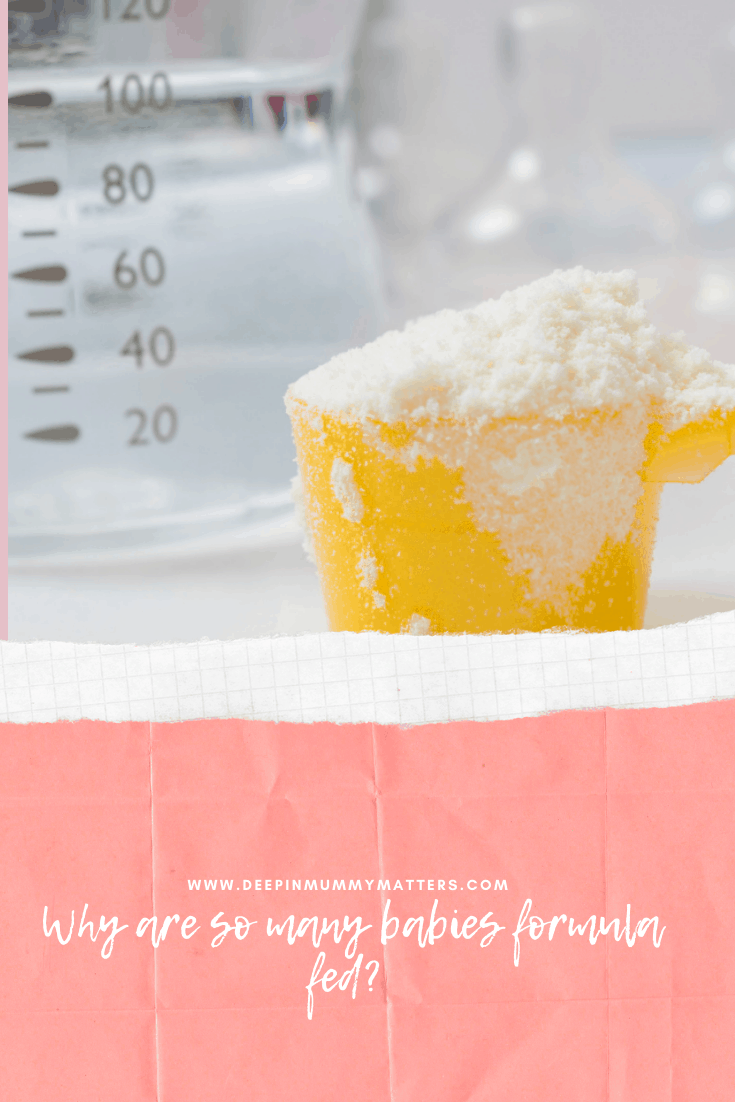The value of breast milk is obvious because there is no more suitable nutrition for an infant. Nature has ensured that the mother’s milk exactly meets the needs of the baby’s body and its composition changes with the growth of the baby. This food contains all the necessary vitamins and microelements for the normal growth and development of the child. Paediatricians around the world encourage expectant mothers to breastfeed at least during the first six months of life in order to build up the necessary immunity.

Is breastfeeding for everybody?
Although the benefits of breastfeeding are well known, sometimes the baby has to be switched to formula due to some circumstances. The reasons may be very different: poor health of the mother or baby, lack of lactation, the need to leave maternity leave early.
Of course, the mother should try as long as possible to keep breast milk and stimulate its production, but if this does not work, don’t get into despair. Lots of babies have grown up perfectly healthy on formula as well. If you look at a group of three-year-olds, you can never guess which of them were fed naturally and which artificially.
Barriers to Breastfeeding
- Lack of Knowledge.
- Social Norms.
- Poor Family and Social Support.
- Embarrassment.
- Lactation Problems.
- Employment and Child Care.
- Barriers Related to Health Services.

Invention of Milk Formula
Back in 1865, Justuf von Liebich created a valuable product: infant formula consisting of dried cow’s milk, wheat and barley flour and potassium hydrogen carbonate. This was the first commercial substitute for breast milk, developed on the basis of scientific research.
As Mr Libich well knew, not every child has a mother who can breastfeed him. Moreover, not every baby has a mother in general: before the era of modern medicine, every hundred of childbirths caused the death of the mother (Unfortunately, the statistics in poor countries are not better today).
Some mothers do not have enough milk (probably every twenty, although there are some doubts about this figure). In the past, wealthy parents hired nurses for their children. The poor used to feed their children with goat or donkey milk, which was not very good for the child’s body.
It was Libich’s milk formula for infants that allowed families to choose the lifestyle that was previously available only to wealthy parents.
Formula Saves Lives
The possibility of choice, which appeared due to the milk formula and today, is very important in the labour market. For many women who have recently given birth, but need or desire to go back to work, breast milk is a “gift from God”. And these women do not in a vain worry that long maternity leave can affect their careers.
Recently, economists investigated the career paths of young men and women with high potential – gifted graduates. In the beginning, the experience of women did not differ significantly from that of men – and later there was a difference in wages, which over time became large.
The tipping point was motherhood. Women went on maternity leave, and employers began to pay them less.
A fascinating fact is that the men in this group had more children on average – but parenthood was not reflected in their professional lives.
As a matter of nature, women are more likely than men to pause in their careers, there are biological and cultural reasons for this.
We cannot change the fact that only women have children, but we can try to change the interrelationships in the family so that both parents feel comfortable and engage in self-fulfilment. Statistics show that over 20% of women, among moms, suffer from postpartum depression caused by feelings of loneliness and isolation. A new mother feels isolated from society and limited in her abilities.
Thanks to the milk formulas, it is easier for the mother to replace her when she goes to work. Of course, there is also the possibility of draining mother’s milk – but for many people, it is more difficult than to dilute the formula with water.
According to research, the shorter the leave a mother takes, the less likely it is that she will continue to breastfeed her child, and this is not surprising.
Of course, many women enjoy breastfeeding. But for a large number of them, this process turns into real suffering, which strengthens the already difficult life of newborn parents – a marriage of time for themselves, sleep deprivation.
Give your kids the best of everything
All mothers want the best for their children. From the moment the baby is born, breastfeeding is the best choice because it is extremely useful, always convenient and cost-effective.
But the modern world dictates new rules of life. Short maternity leave, stress and many other factors affect the duration of breastfeeding.
If you have decided or are forced by the circumstances of life to switch to formula feeding, you should first consult your paediatrician and learn the composition of them.
Today, some mothers may feel guilty about feeding their baby “from the bottle” rather than the natural way, but feeding the baby with the baby formula does not threaten breastfeeding. Milk will not disappear if the sum is given once or twice a day. Many women successfully combine breastfeeding and formula feeding for many months.

Modern manufacturers try to bring the formula as close as possible to the composition and flavour of breast milk. Of course, the quality of the formulas is getting better and better every year, but you should understand, none of them can replace the natural mother’s milk by 100%. However, the milk formula is the only substitute for mother’s milk.
More information can be found on the page: Best Organic Baby Formula 2021
Baby Formula
As a rule, mothers who do not have enough milk feed their babies with supplementary nutrition or completely transfer their babies to piece milking. Keep in mind that children under one year of age do not recommend animal milk, both cow and goat. A small child’s liver cannot cope with the amount of protein and microelements contained in animal milk, so there is a great risk of compromising the health of the child.

The only appropriate food for babies who do not receive mother’s milk is milk formula. It is adapted for the child’s body, according to their age needs.
Adapted milk formulas are divided into three categories according to the degree of approximation of their composition to breast milk:
- Highly Adapted;
- Less adapted;
- Partially adapted.
It is also necessary to take into account the fact that there are three types of adapted milk formulas:
- for newborns and premature babies ( in the name number “0”)
- for children aged between 0-4-5 months (named after the number “1”)
- for children over 4-5 months of age (number “2”).
Infant Formula Composition – Baby Formula that’s closest to breastmilk
The composition of high-adaptation formulas is the closest to the composition of breast milk. They contain all the necessary ingredients:
The protein component is represented by casein (the main protein of cow’s milk) and serum proteins in a ratio of 40:60 or 50:50, which is close to the ratio in breast milk (45:55).
The fat component in the formulas is represented by plant polyunsaturated fatty acids (PUFAs): ω-6 (linoleic) and ω-3 (linolenic), which are added to the food formulas.
Lactose is the only carbohydrate in most formulas, as in breast milk. The latter is broken down by the enzyme lactase, which is produced in sufficient quantities in the newborn baby. Lactose ensures more complete absorption of calcium and phosphorus and promotes the development of normal microflora with an excess of bifidobacteria.
The packets are also enriched with water- and fat-containing vitamins in much higher amounts than they are contained in the woman’s milk.
Mineral composition of formulas is regulated by the additional introduction of some macronutrients: lime, zinc, copper, iodine, fluorine, whose content in cow’s milk is much lower than in woman’s milk.
The composition of formulas includes a number of biologically active substances (taurine, lecithin, L-carnitine, choline) that play an important role in the biological processes of the child’s body, especially in the first months of life.
Only you decide how your life is going to turn out
So, as we can see, today there is a great choice of milk formulas, the composition of which is close to breast milk. And if you happened to make a choice in favour of the milk formula, there is nothing bad or catastrophic about it. The main thing is that all members of the family were in a harmonious relationship, understood one another and helped in difficult life situations. Only when there is emotional stability in the family will the child be able to grow and develop normally, feeling the love of their parents.
References
- https://www.who.int/health-topics/breastfeeding
- https://www.ncbi.nlm.nih.gov/books/NBK52688/
- https://tdmuv.com/kafedra/internal/pediatria2/classes_stud/en/med/lik/ptn/Propaedeutic%20pediatrics/3/Theme%2015%20Formula%20feeding…htm
- https://www.cdc.gov/breastfeeding/data/reportcard.htm
- https://www.cdc.gov/breastfeeding/data/nis_data/results.html

